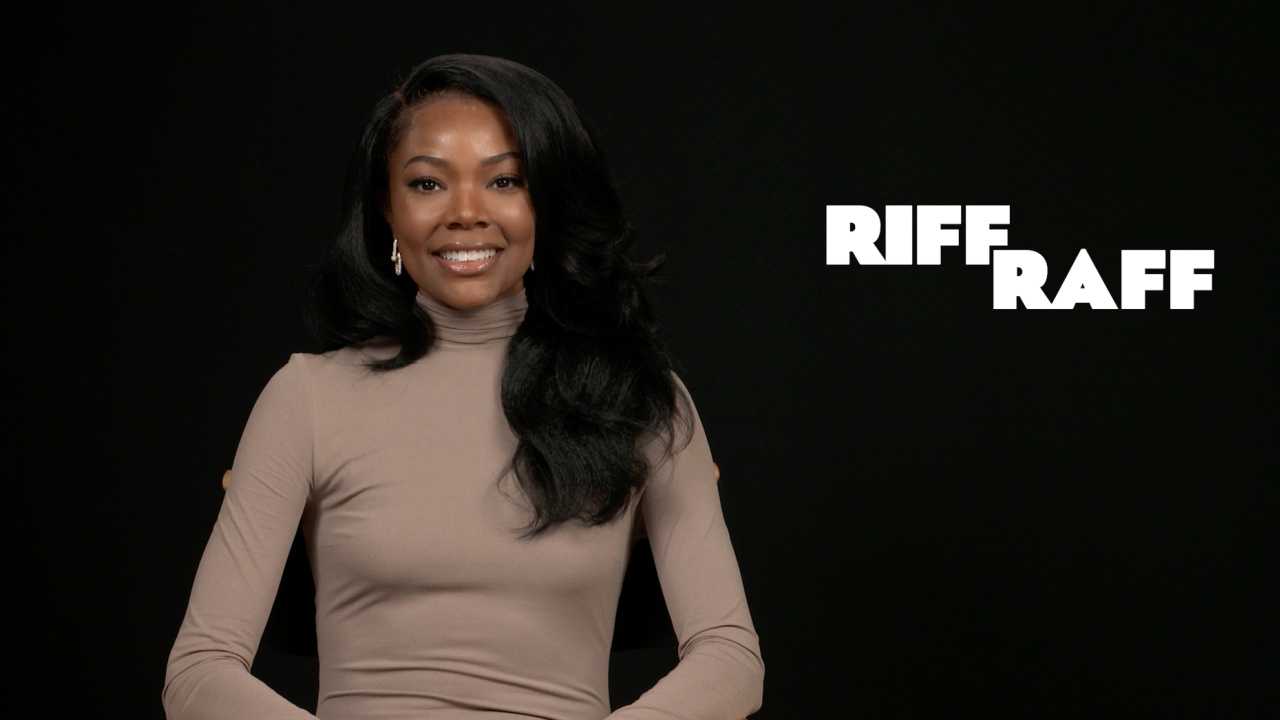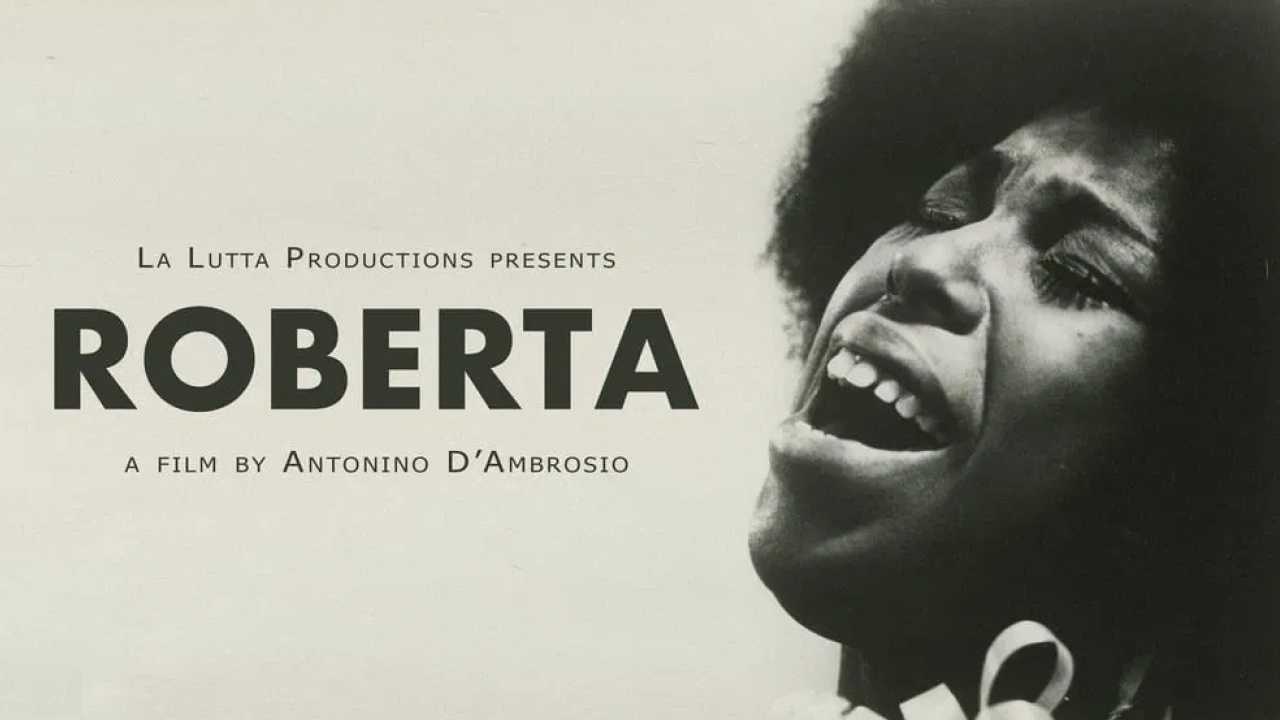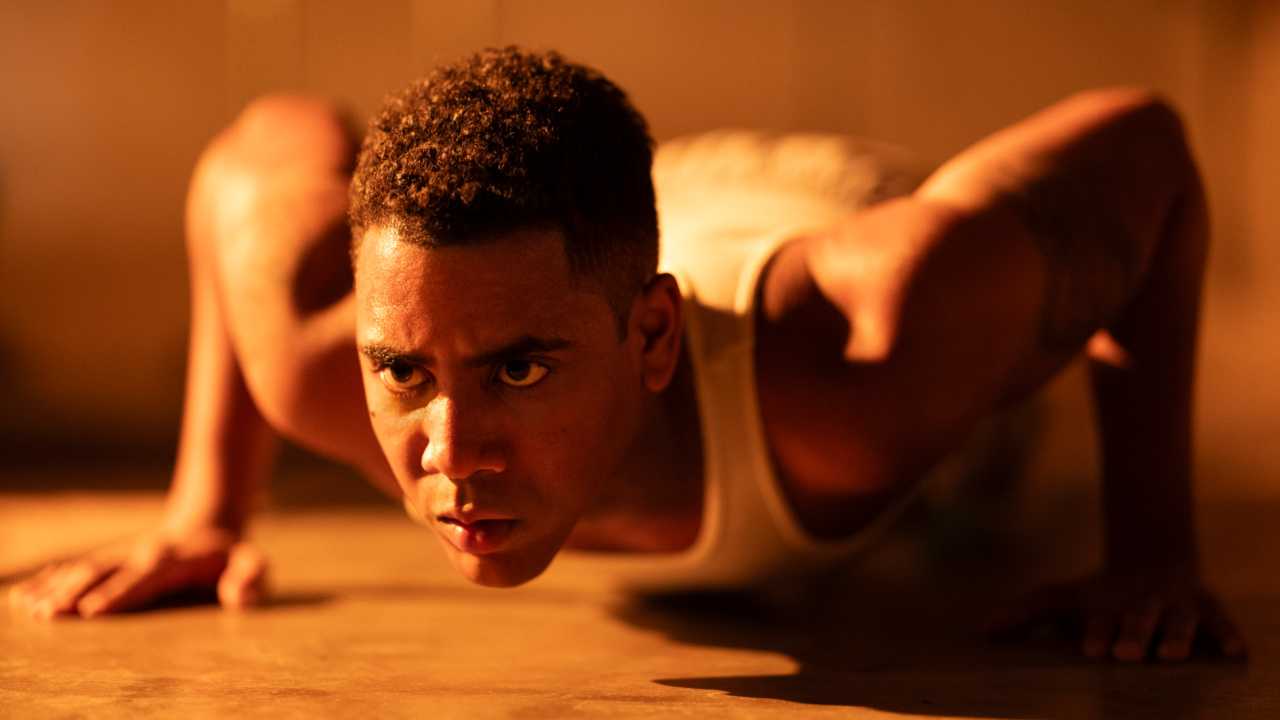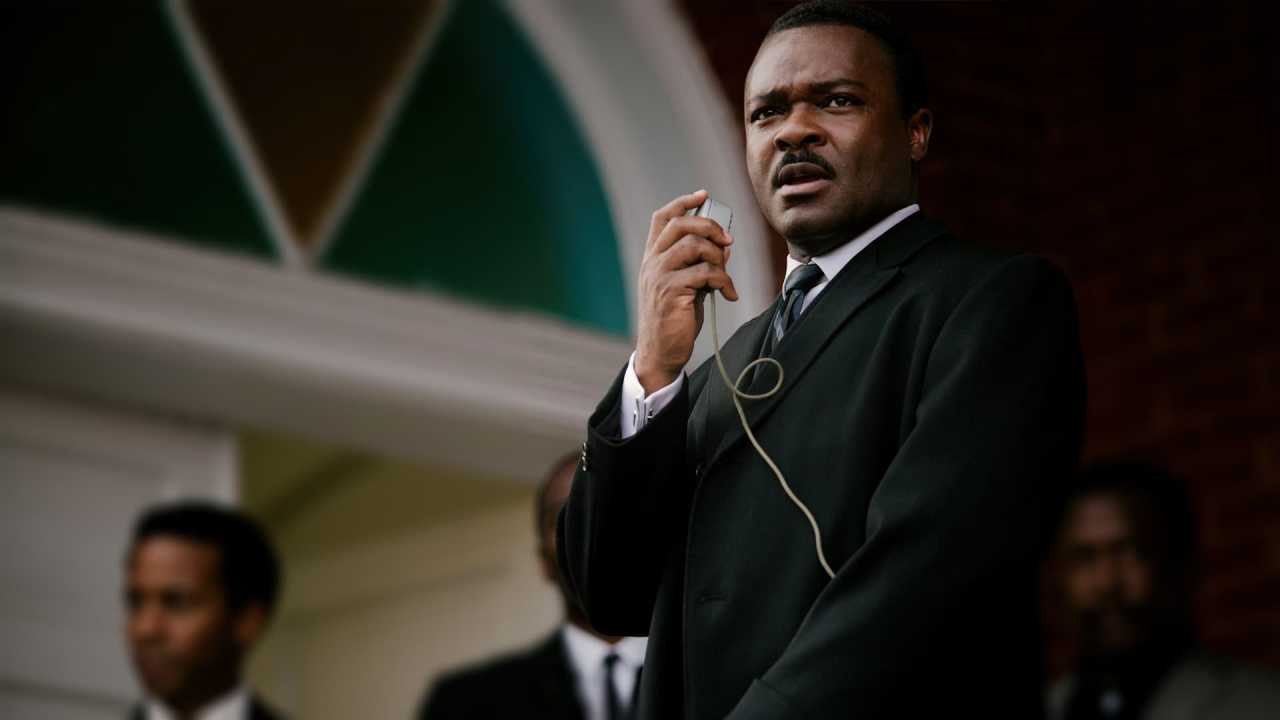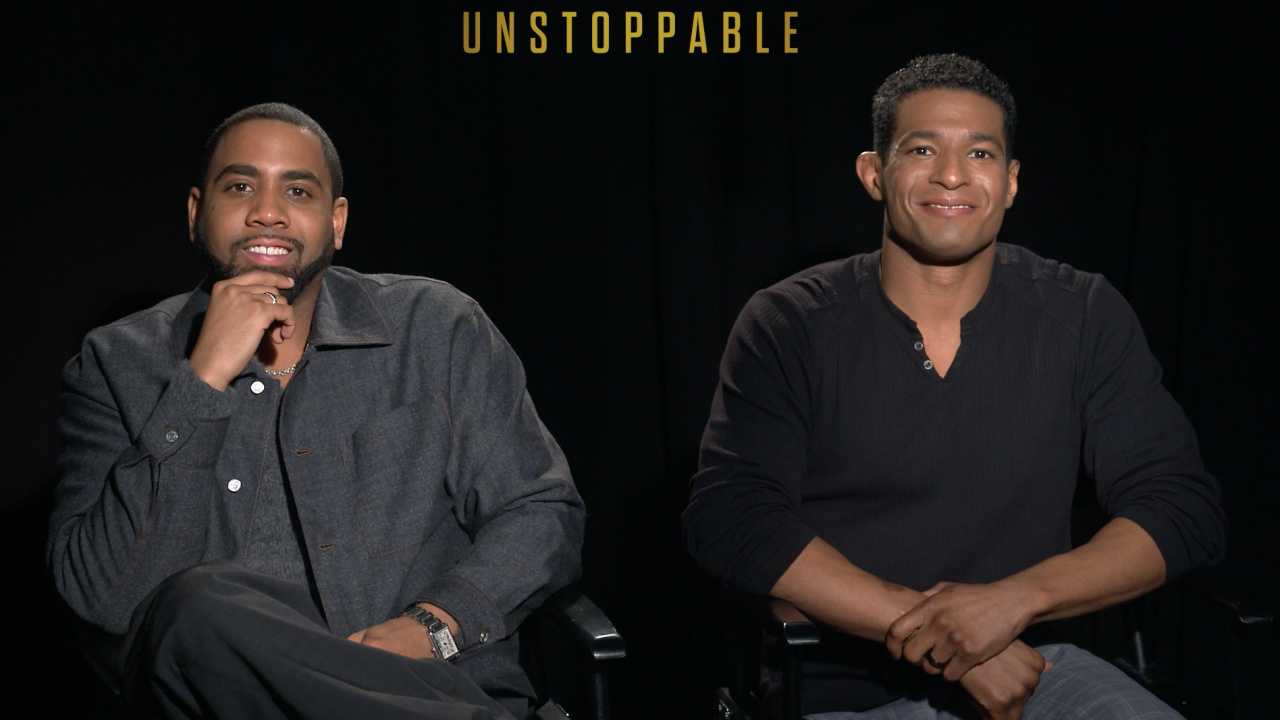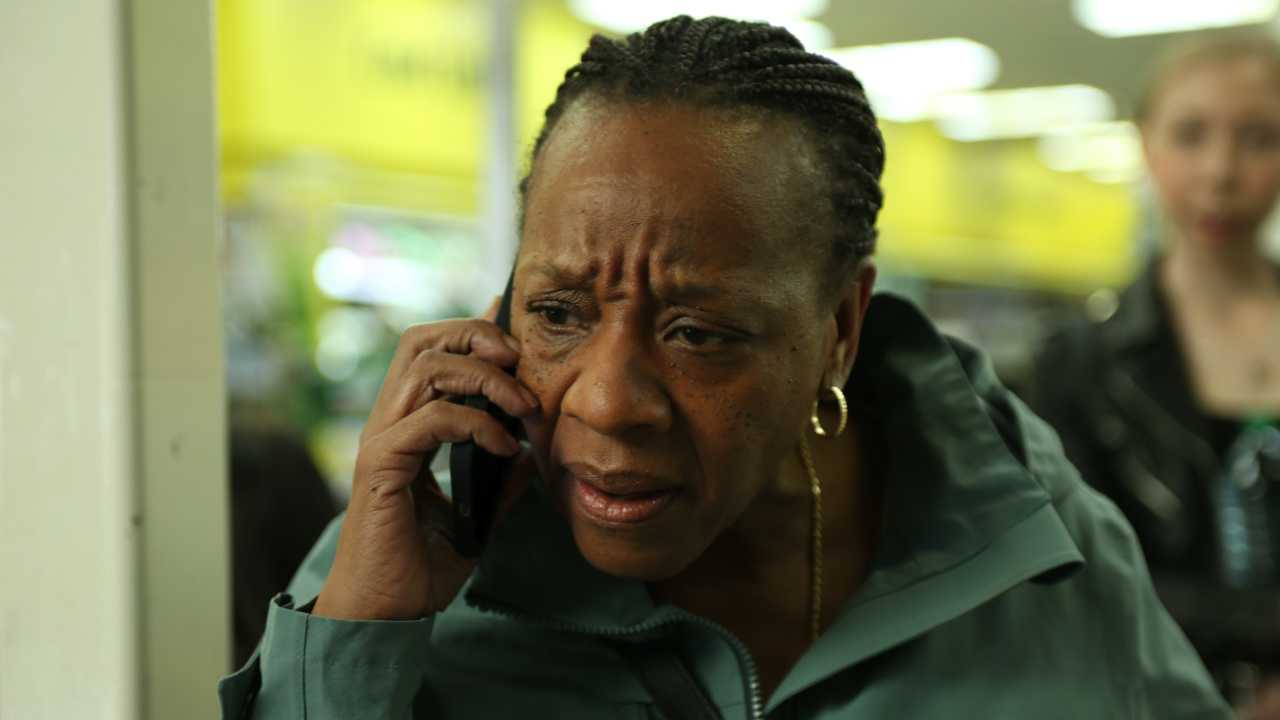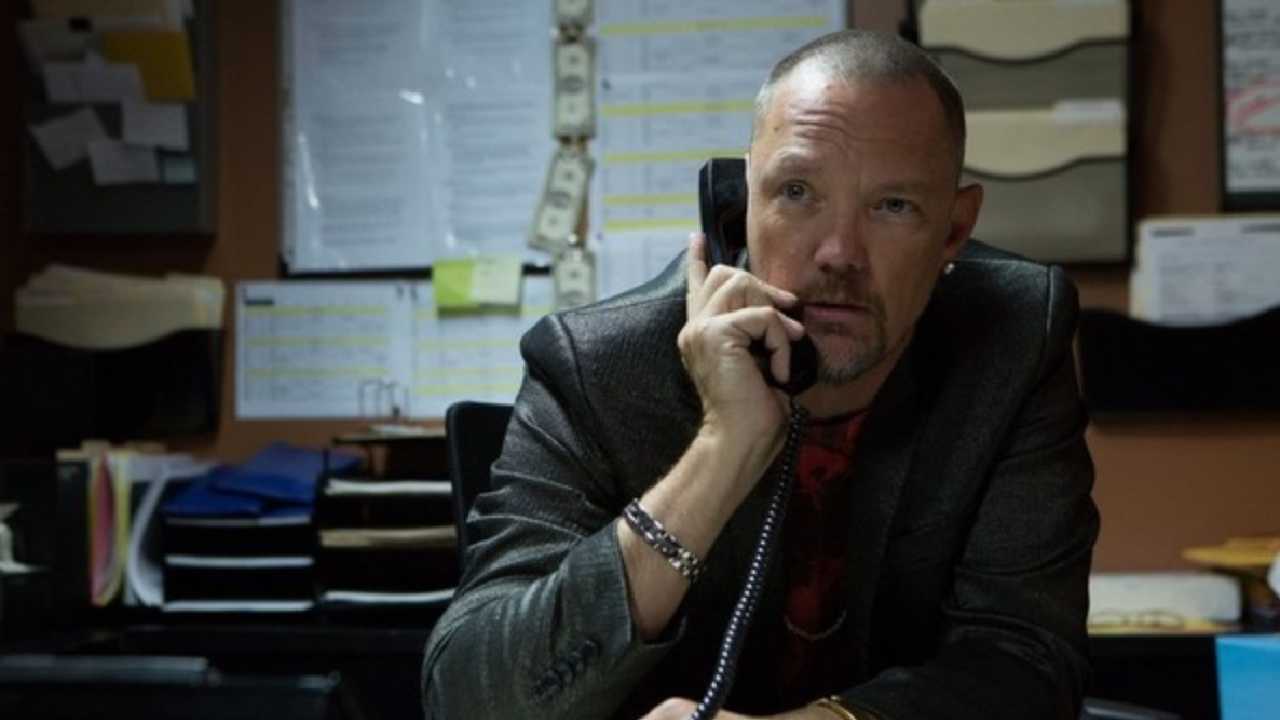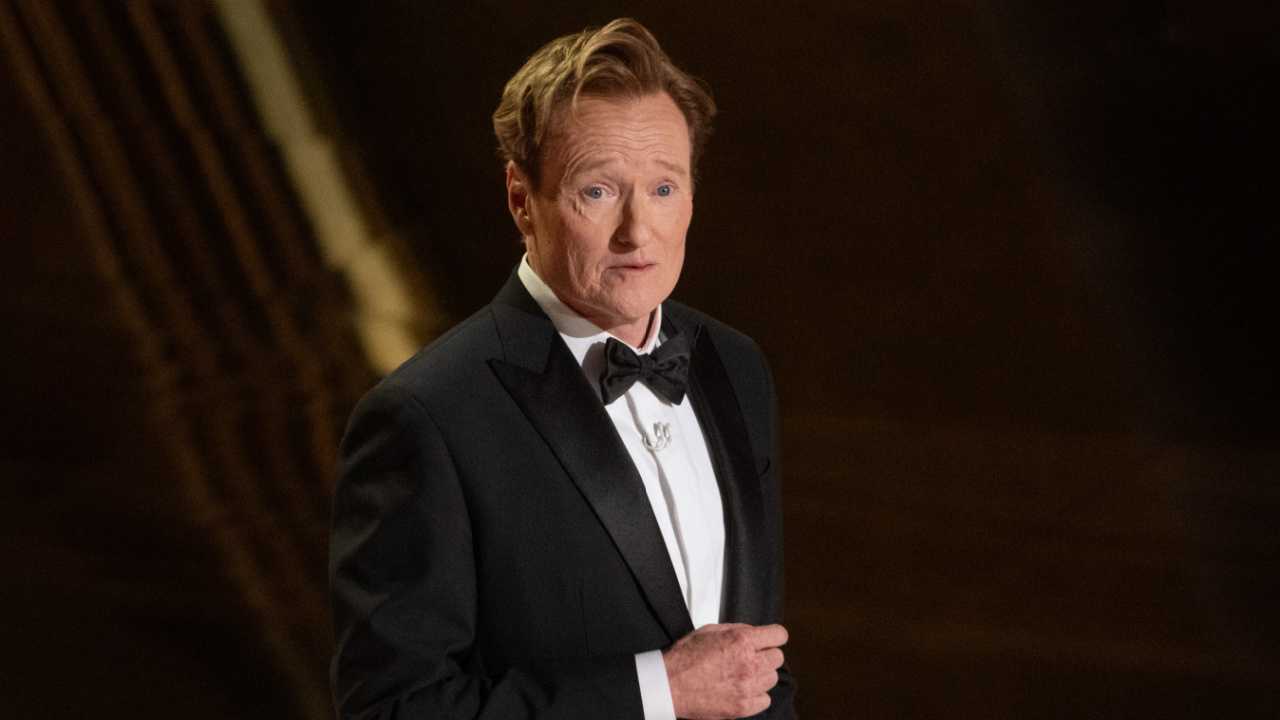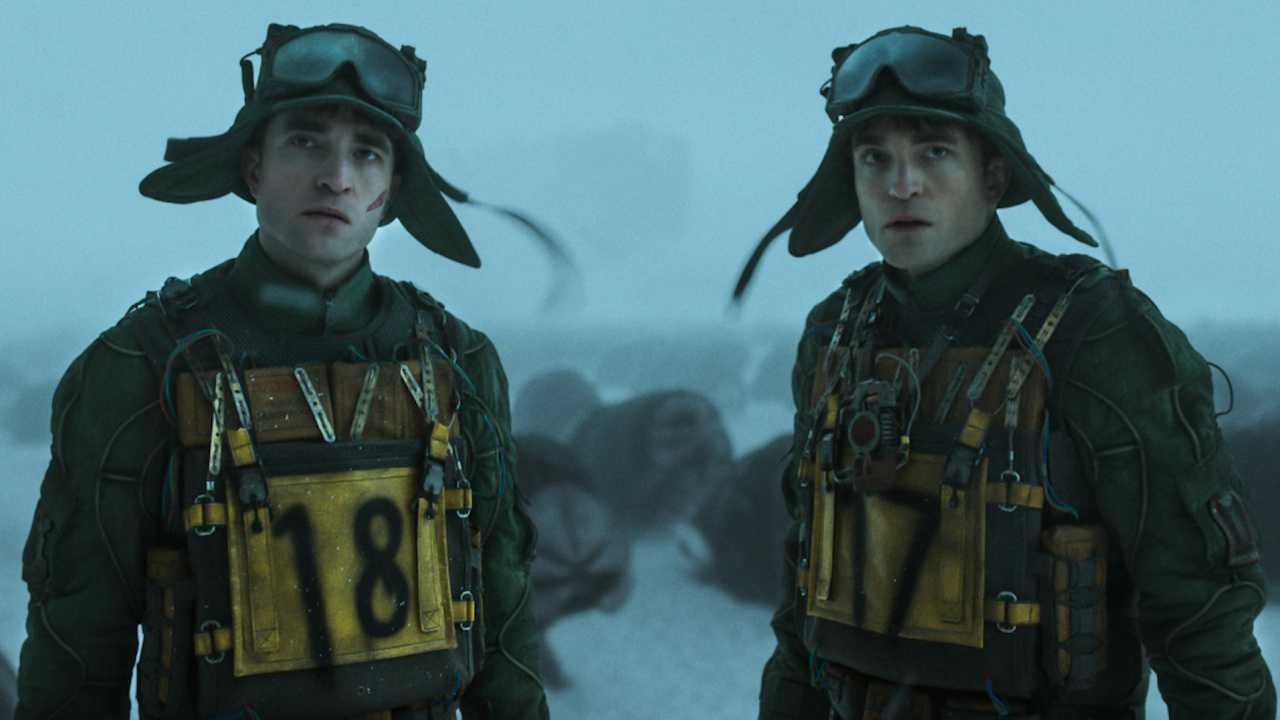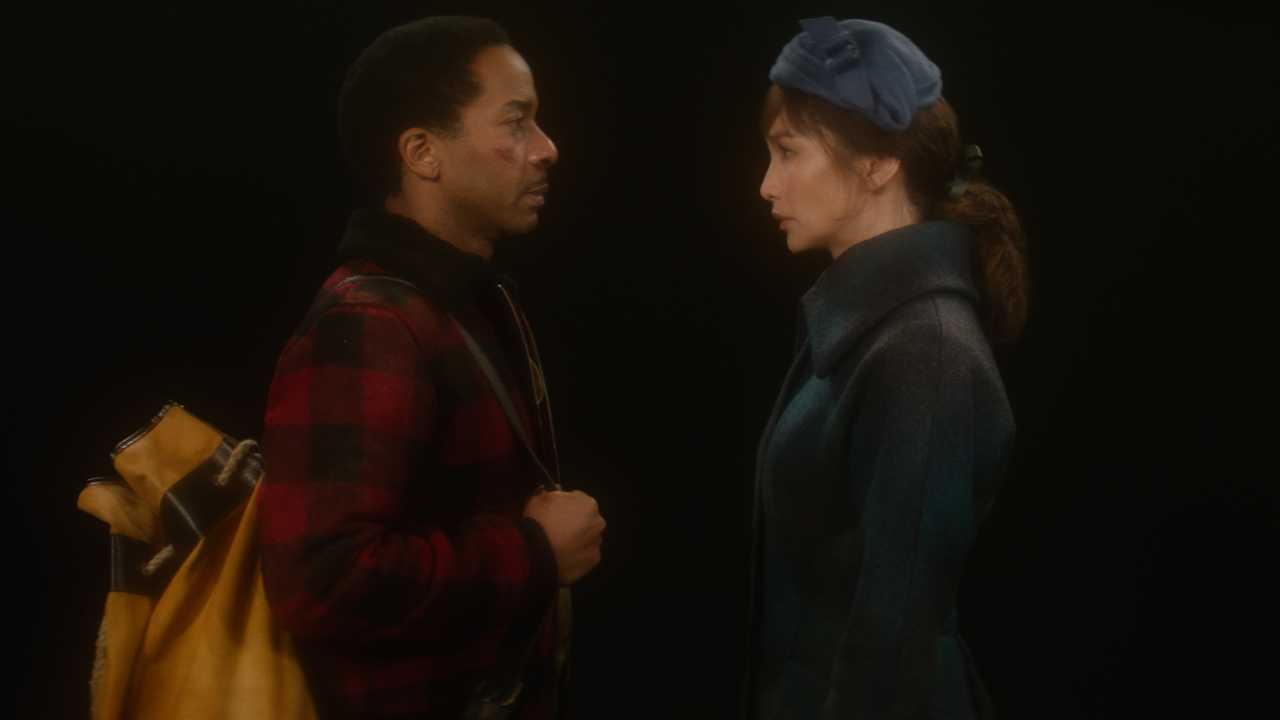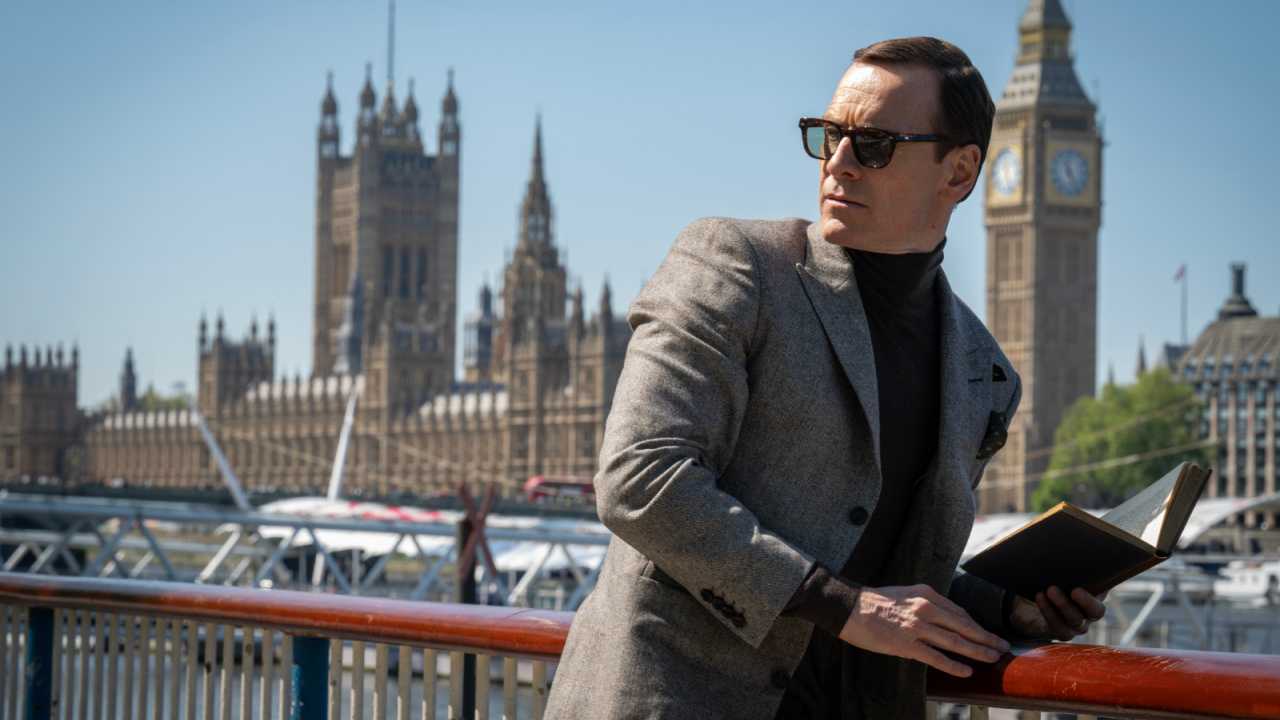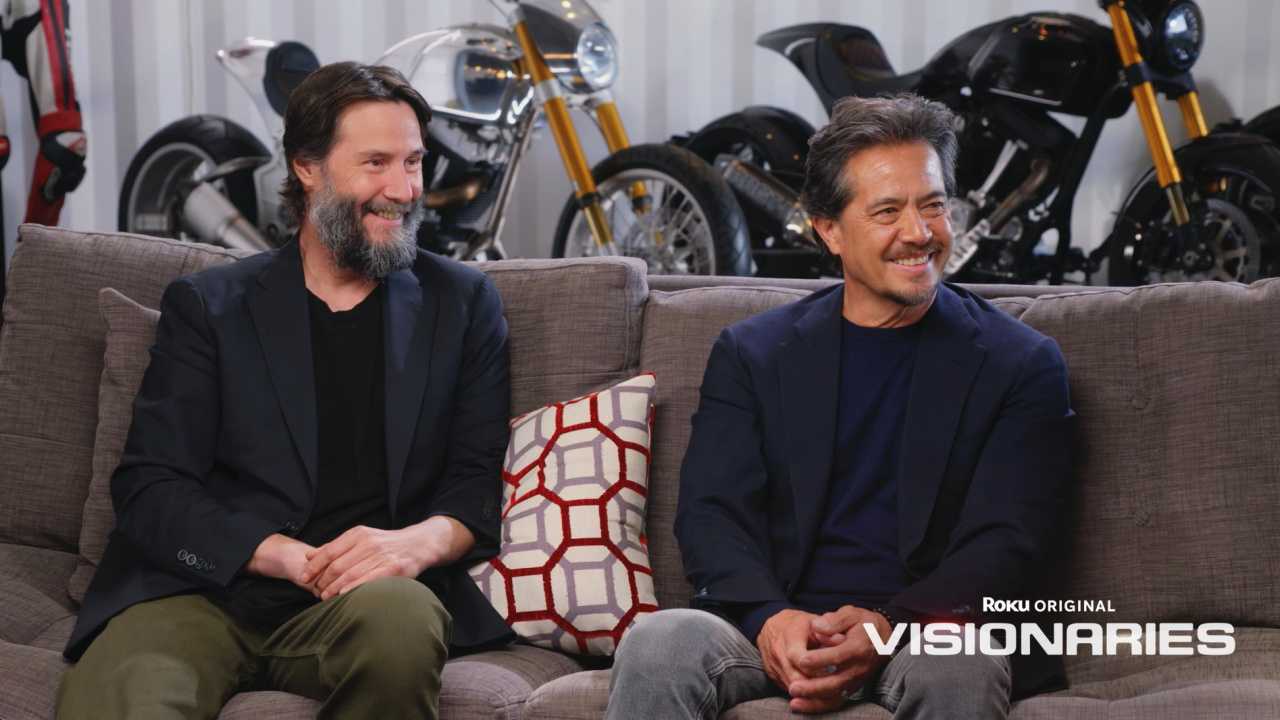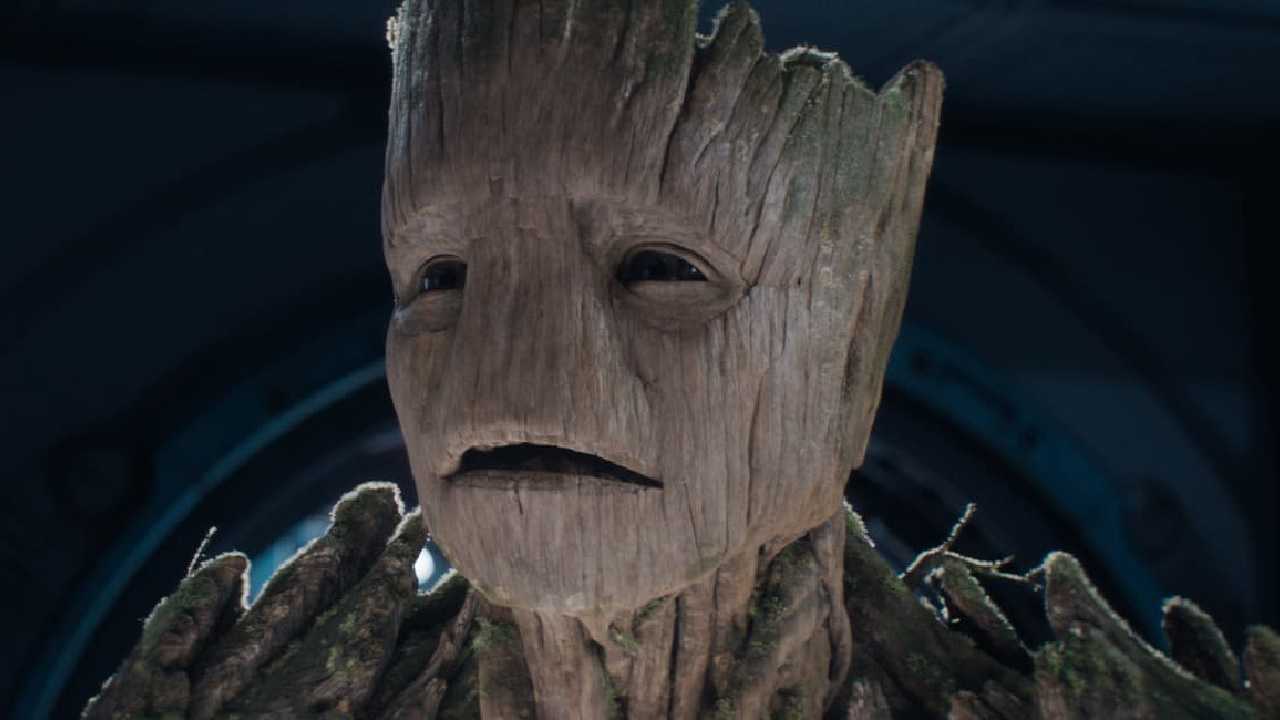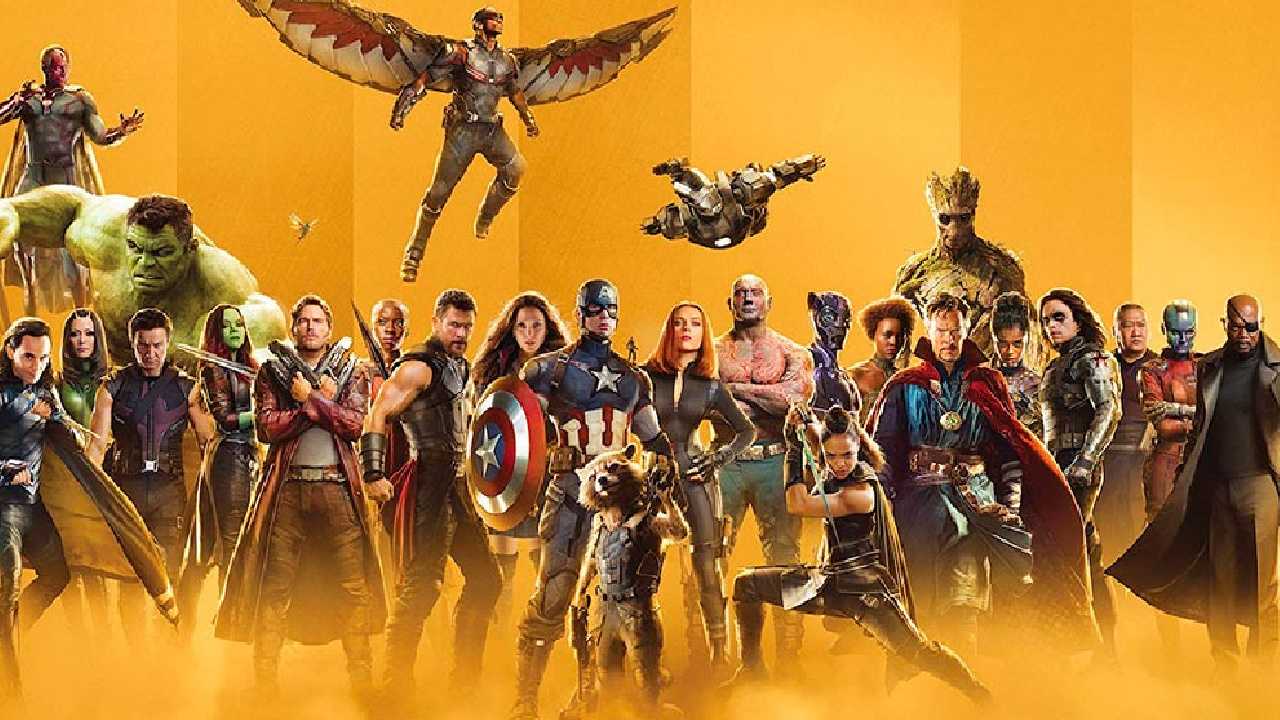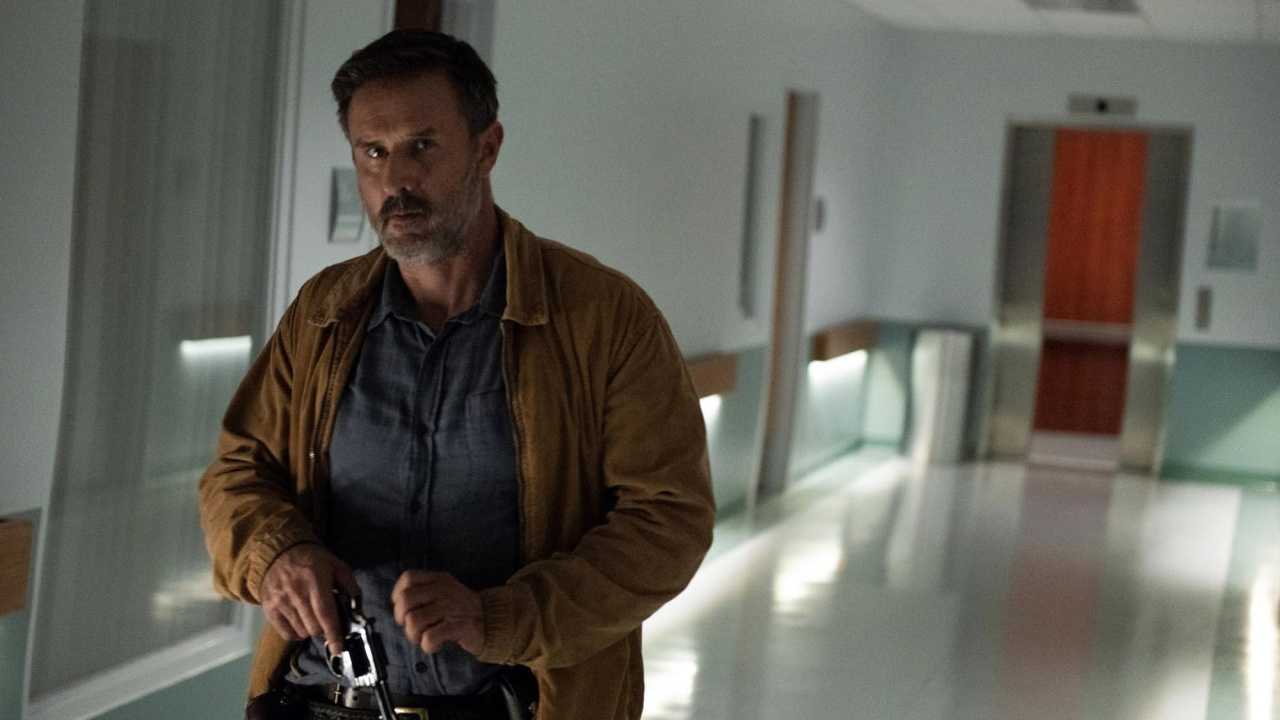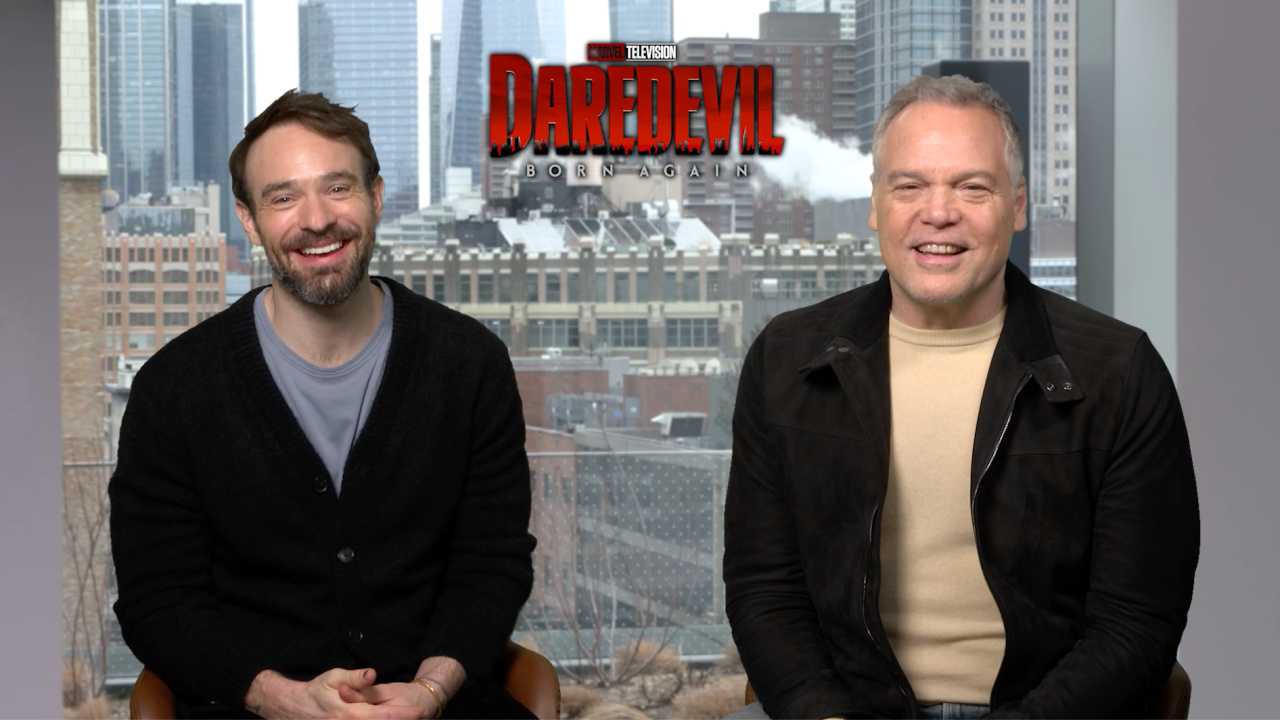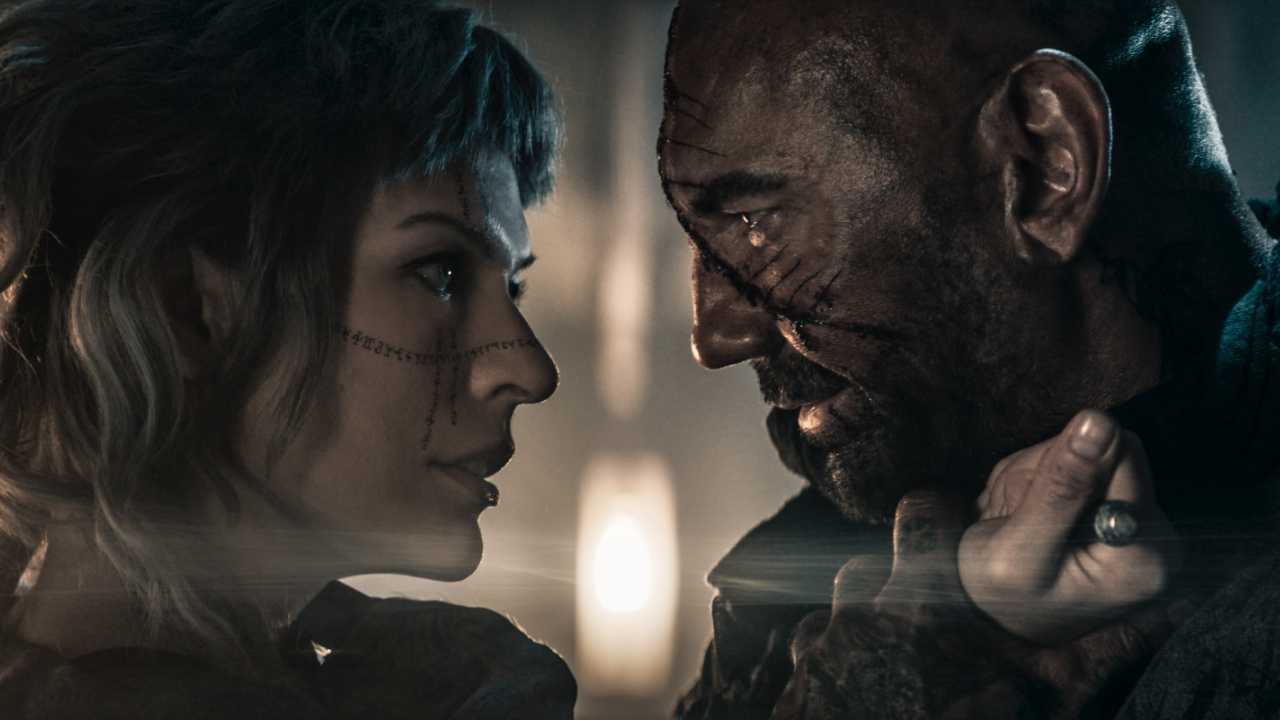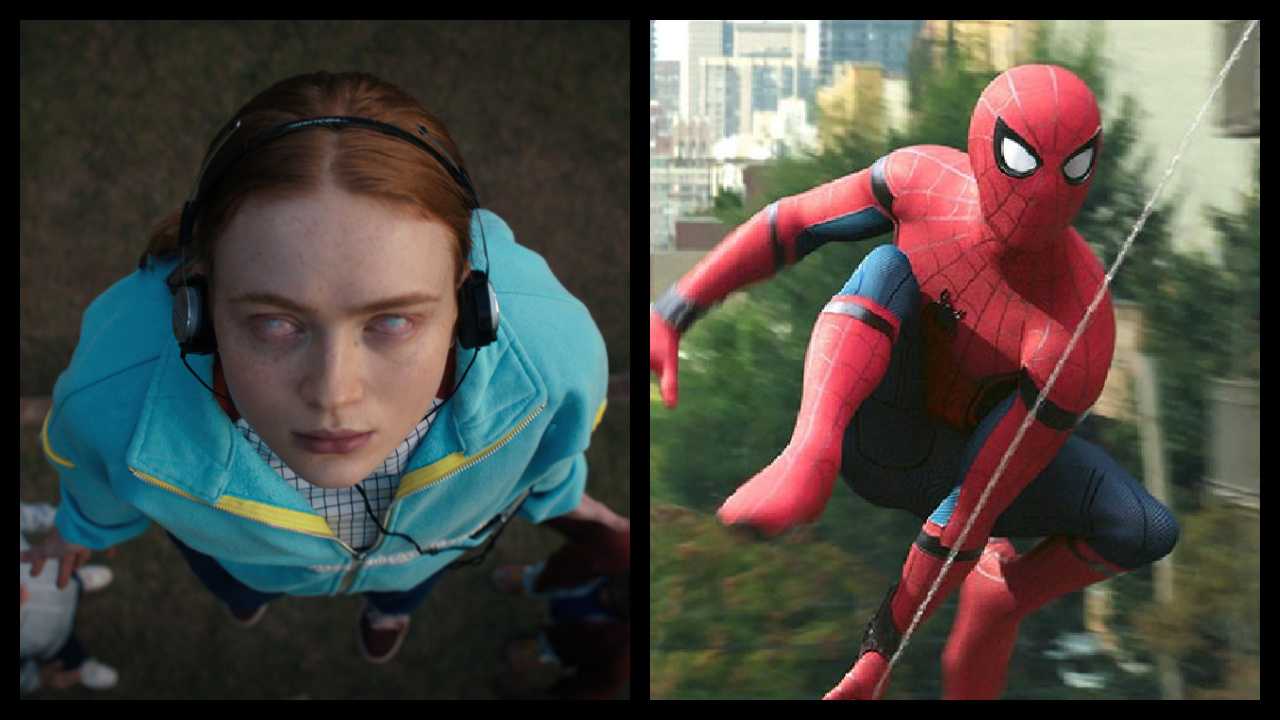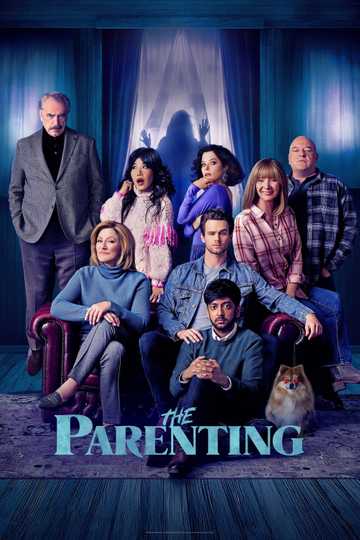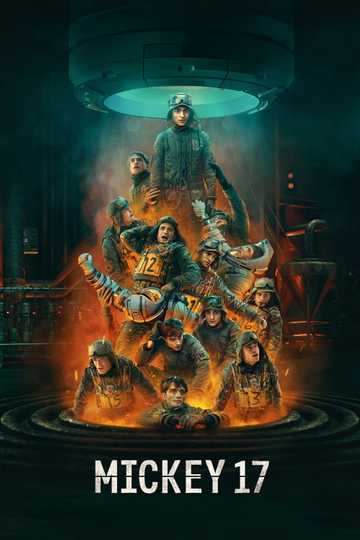Chiwetel Ejiofor Talks Writing and Directing the True Story 'Rob Peace'
Moviefone speaks with Chiwetel Ejiofor about 'Rob Peace'. "I was interested in understanding these intersections in the systemic realities that Rob faced."
Opening in limited release in theaters on August 16th is ‘Rob Peace,’ which is based on a true story and the book ‘The Short and Tragic Life of Robert Peace’ by author Jeff Hobbs.
The movie was written and directed by Chiwetel Ejiofor (‘Doctor Strange’), who also stars as Rob’s father, while Jay Will (‘Tulsa King’) plays Peace. The supporting cast also includes Mary J. Blige (‘The Umbrella Academy’), Camila Cabello (‘Cinderella’), and Michael Kelly (‘Man of Steel’).
Movie Review: 'Doctor Strange in the Multiverse of Madness'
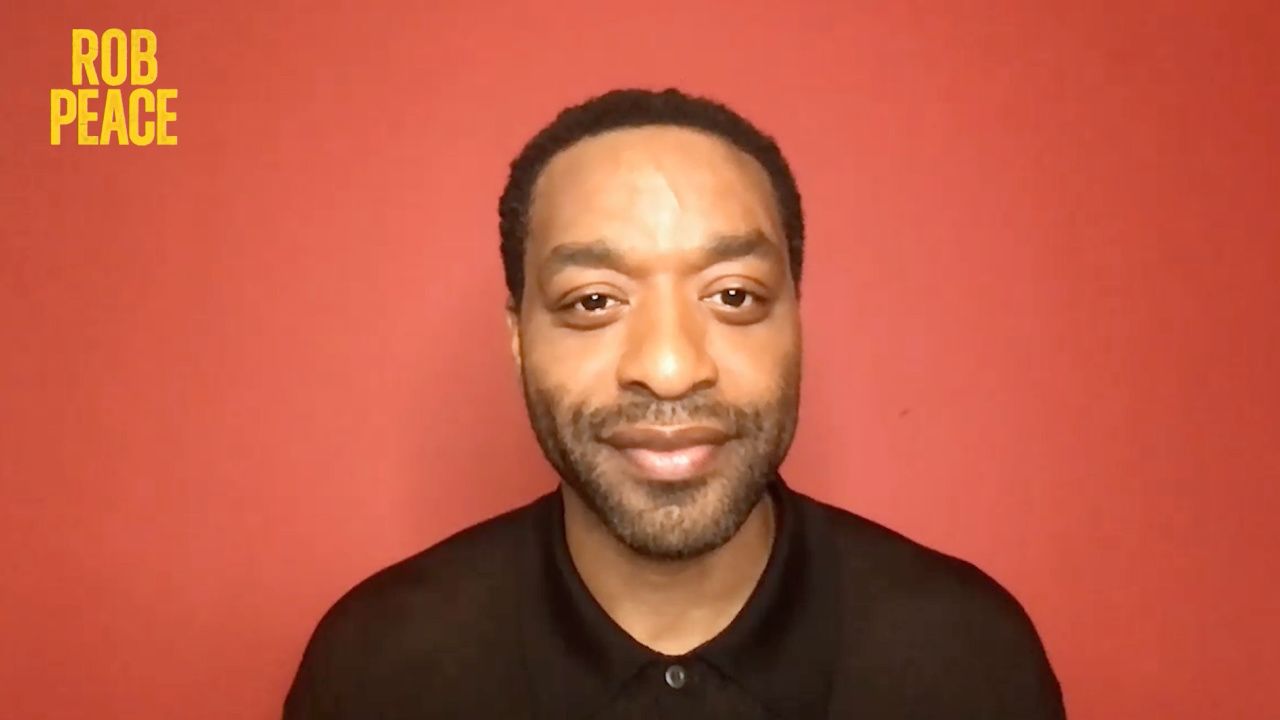
'Rob Peace' writer, director and actor Chiwetel Ejiofor.
Moviefone recently had the pleasure of speaking with actor, writer and director Chiwetel Ejiofor about his work on ‘Rob Peace’, his first reaction to learning of the true story, adapting the novel, playing Rob’s father, their relationship, and casting Jay Will.
You can read the full interview below or click on the video player above to watch our interviews with Ejiofor, Jay Will and author Jeff Hobbs.
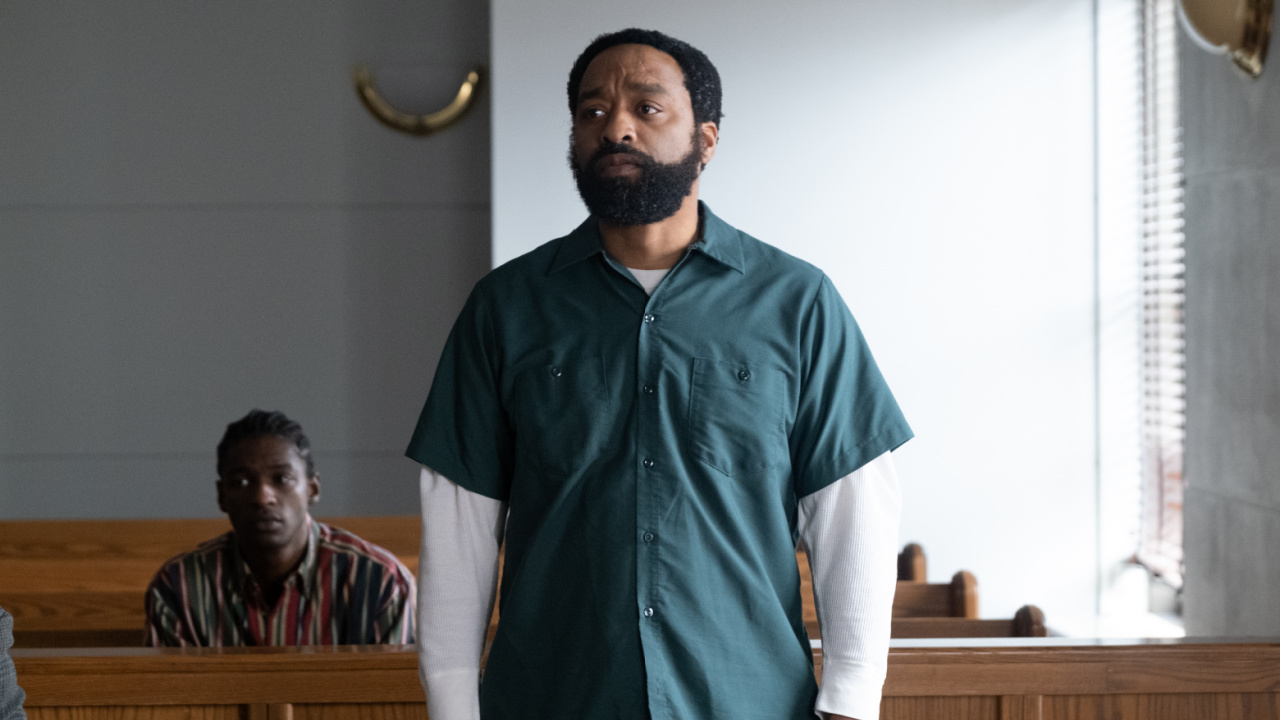
(L to R) Jay Will and Chiwetel Ejiofor in 'Rob Peace'. Photo: Republic Pictures.
Moviefone: To begin with, what was your first reaction to learning of Rob's true story and why did you personally want to make this movie?
Chiwetel Ejiofor: When I first read the book, which was not long after it came out and before I was involved in the film, I was just really moved by his story. I thought that it really encapsulated thoughts and ideas that I had had, I suppose, but not organized in a way, the way that the book does. Jeff Hobbs, Rob's roommate at Yale wrote a book that really encapsulates not only Rob's life, but a lot of the systemic challenges that were faced by Rob. I felt like that was incredibly moving to see in this document and a document of empathy and a document of passion in this book. So, I was very moved and inspired to talk about that because I immediately felt that it had a cinematic resonance. So, I was inspired to see what that would feel like, what that would be like, and how to bring this story off the page.
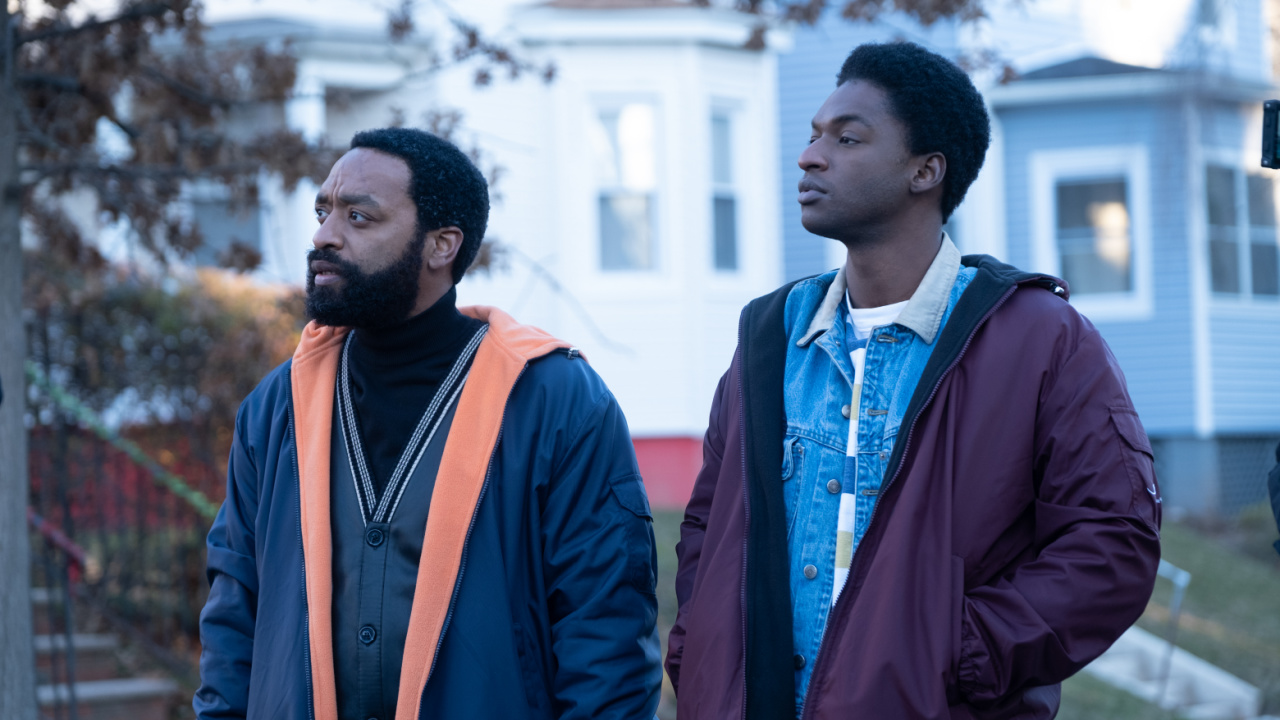
(L to R) Chiwetel Ejiofor and Jay Will in 'Rob Peace'. Photo: Republic Pictures.
MF: Can you talk about developing the screenplay, adapting Jeff Hobbs’ book and the themes you wanted to explore as a filmmaker?
CE: I think I was very interested immediately in understanding these intersections in the systemic realities that Rob faced. So, there were intersections of race, of housing, of the education system, of the criminal justice system due to Rob's father who may or may not have been wrongly imprisoned for a double homicide, and this having a profound effect on Rob's life. So, my first interest was in this region and pulling together these ideas, these thematic ideas. Then I suppose it grew into this kind of idea of what is our responsibilities. As a theme, what are our responsibilities to ourselves? What are our responsibilities to our community? Who draws those lines and who draws those boundaries? How when people are faced with very complicated circumstances, especially if they're young, especially if it's emotional, how can they navigate these challenges and these challenges of responsibility? I felt that that was an important theme. It's an important theme in the world. I think that the ideas of social mobility are talked about in sometimes quite limited ways, Rob being an extreme example of this in many ways, but for a lot of people, the ideas of social mobility are incredibly challenging. I felt that it was important to speak about that. I felt that there was some room thematically in a narrative to talk about that. I also felt that it had a dramatic energy, that there was something that could be cinematic about those choices, about those decisions, and about those relationships. So, for all of those reasons, I think I wanted to start to explore it as a screenplay and as a film.
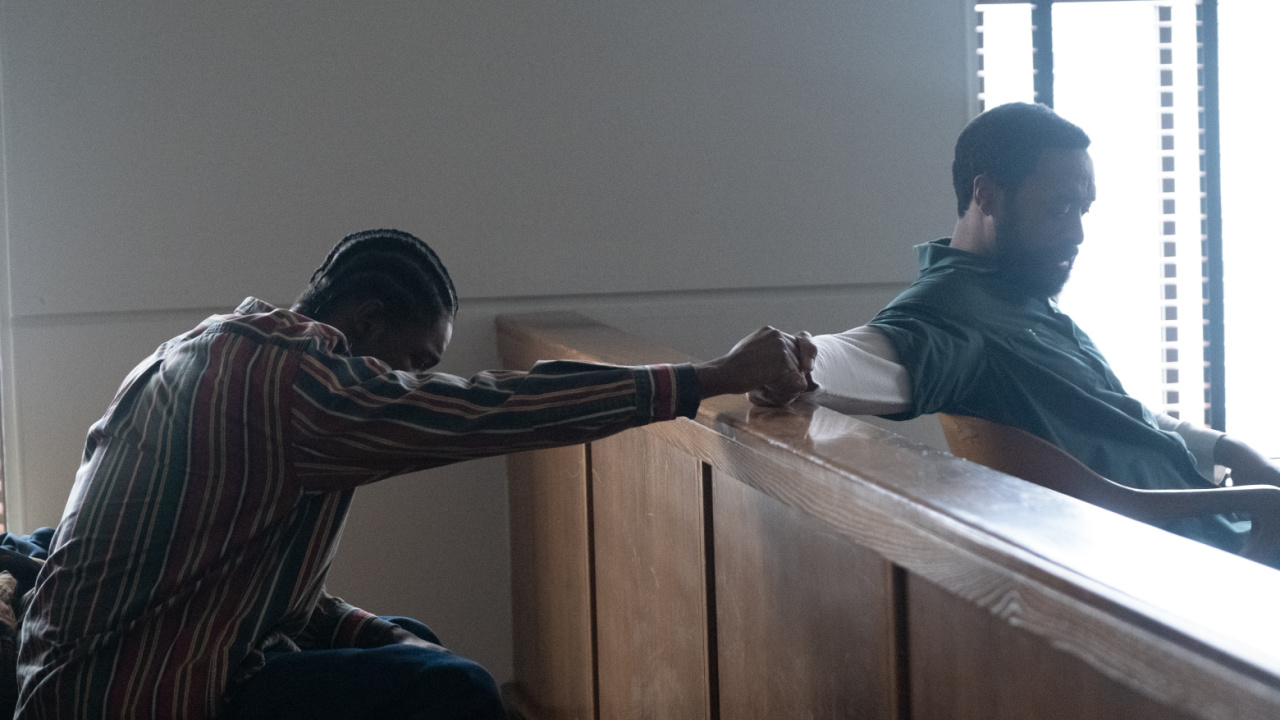
(L to R) Jay Will and Chiwetel Ejiofor in 'Rob Peace'. Photo: Republic Pictures.
MF: Can you talk about your approach to playing Rob’s father, Skeet and how he is relying on his son to get him out of prison?
CE: I think it is a powerful central relationship in the story. This part of the story being about a father and son and how once Skeet is incarcerated, he starts to rely on Rob in a way that puts an enormous amount of pressure on his son. To me I was interested in that dynamic because I felt that it's a really interesting way to look at those kinds of familial relationships. That at what point is it too much? At what point do you feel that a father needs to allow whatever's happening to him to happen to him and not apply any additional pressure on a son who idolizes him in some ways, who is receptive to these kinds of pressures, who appreciates and values as foremost in his mind in some ways the ideas of family and community and these kinds of relationship and bonds that tie. At the same time, I felt like I could completely understand Skeet's issue, that his desperation, wanting to grasp anything, anyone who's declared that they're on your side to aid you out of difficult circumstances. That push and pull, the nature of that dilemma I just thought was fascinating, was interesting, was emotional and I think relates to so many of our lives. Again, in ways that are often in a minor key. But explored in this way I think that there's always something so universal about those challenges.
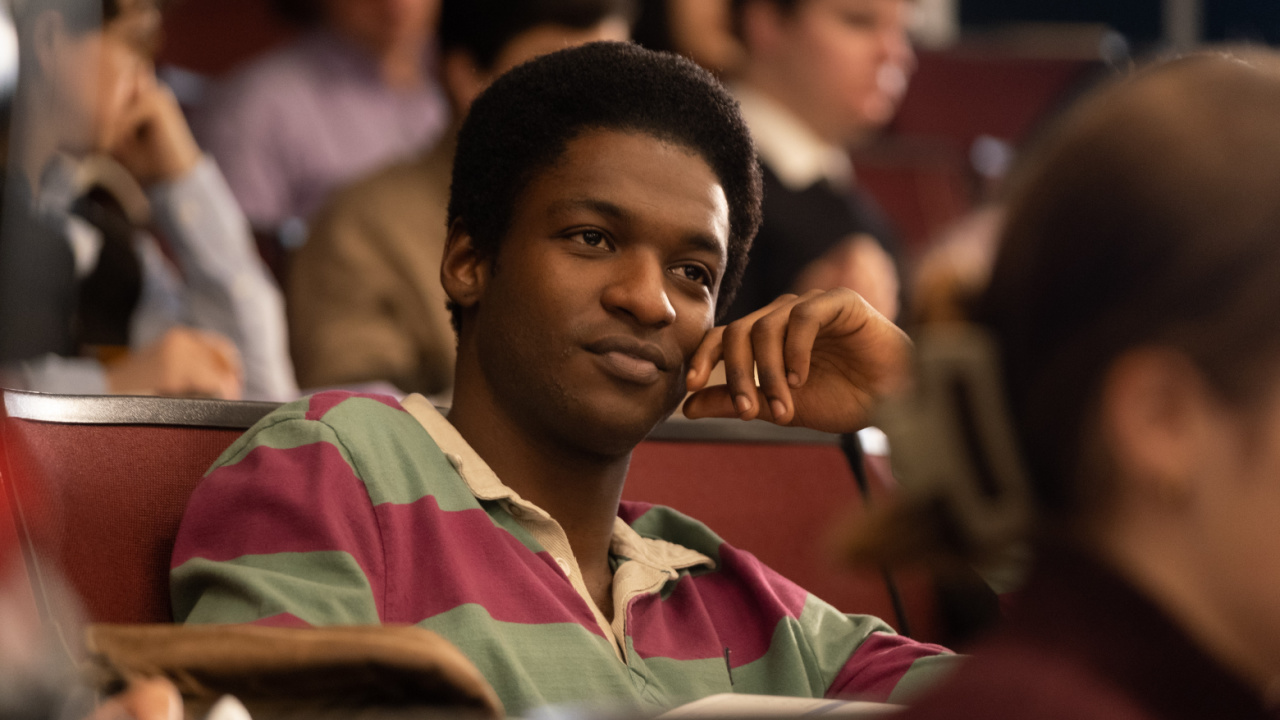
Jay Will in 'Rob Peace'. Photo: Republic Pictures.
MF: Finally, can you talk about the challenges of finding the right actor to play Rob and casting Jay Will in that role?
CE: Jay, I think is remarkable. He was in a way a real discovery because he had just finished at Julliard. He was part of the COVID year, so he didn't really have a showcase to speak of. So, people weren't incredibly aware of him. There were some online materials on him from the school and that I was shown. I just thought immediately that he had a real quality, he had this ease about him which I loved, but there was something very emotional, determined and engaged about him. So, I wanted to do some workshopping with him, and we did some sort of extended auditions, and it became very clear to me very quickly that he is an extraordinary talent. In this part, he was able to bring something to it that made the film feel more complete in a way. I was busy away writing these lines, when you are adapting something and you're in your own way playing all the parts and trying to figure out if a scene works or whatever. Then seeing somebody really embody it, really understand the nuances of these dynamics, which Jay did. He kind of was able to really complete that work because he understood both sides of it. He understood the sides of it that were in the slightly more complicated, slightly more difficult upbringing or circumstances. He understood the Juilliard side and that slightly more rarefied engagement that you can get there. One of the things that was important to me was that it wasn't a conversation about code switching. That it was a conversation about somebody who exists as they are in these circumstances. That we see them differently in some ways because we see them in these different spaces, but they hold themselves in much the same way throughout it. Jay really was able to capture that. It's quite a nuanced thing, but he was able to sit in that space in a way that was completely authentic. I think as an actor, he's just very much a truth seeker and I think that really shows.
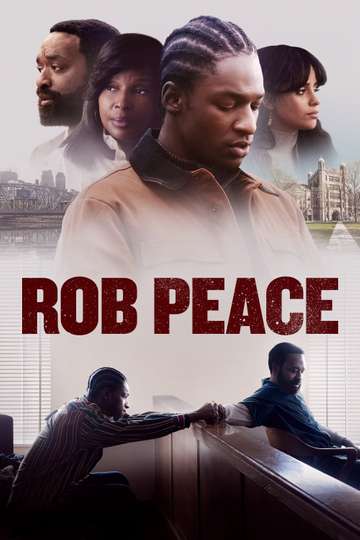
What is the plot of ‘Rob Peace’?
Yale University graduate Rob Peace (Jay Will), known as Shaun at the time his father (Chiwetel Ejiofor) was arrested for crimes he may not have committed, turns to drug dealing to get his father out of jail while maintaining other activities.
Who is in the cast of ‘Rob Peace’?
- Jay Will as Rob Peace
- Chiwetel Ejiofor as Skeet Douglas
- Mary J. Blige as Jackie Peace
- Camila Cabello as Naya Vazquez
- Michael Kelly as Reverend Edwin Leahy
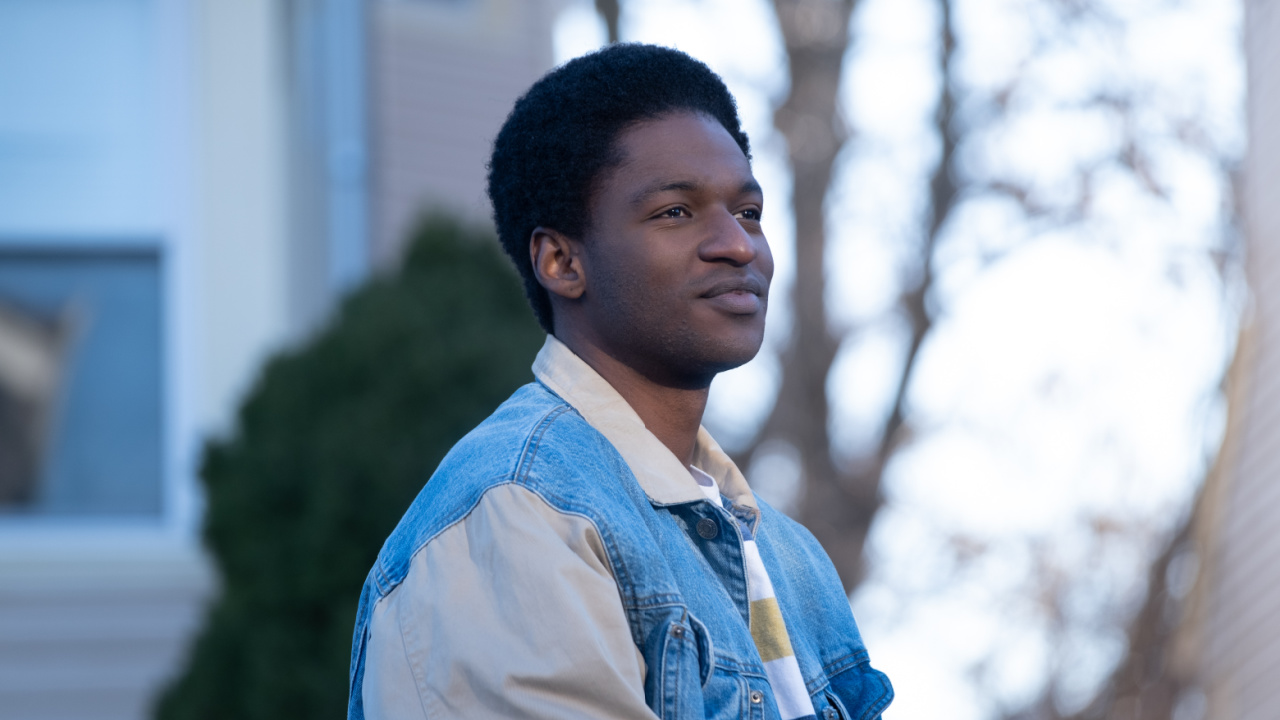
Jay Will in 'Rob Peace'. Photo: Republic Pictures.
Other Chiwetel Ejiofor Movies:
- 'Amistad' (1997)
- 'Dirty Pretty Things' (2002)
- 'Love Actually' (2003)
- 'Four Brothers' (2005)
- 'Serenity' (2005)
- 'Kinky Boots' (2006)
- 'Inside Man' (2006)
- 'Children of Men' (2007)
- 'Talk to Me' (2007)
- 'American Gangster' (2007)
- 'Redbelt' (2008)
- '2012' (2009)
- 'Salt' (2010)
- '12 Years a Slave' (2013)
- 'Phil Spector' (2013)
- 'Z for Zachariah' (2015)
- 'The Martian' (2015)
- 'Secret in Their Eyes' (2015)
- 'Triple 9' (2016)
- 'Doctor Strange' (2016)
- 'Sherlock Gnomes' (2018)
- 'The Boy Who Harnessed the Wind' (2019)
- 'The Lion King' (2019)
- 'Maleficent: Mistress of Evil' (2019)
- 'The Old Guard' (2020)
- 'Locked Down' (2021)
- 'Infinite' (2021)
- 'Doctor Strange in the Multiverse of Madness' (2022)
- 'The Pod Generation' (2023)
Buy Chiwetel Ejiofor Movies on Amazon


